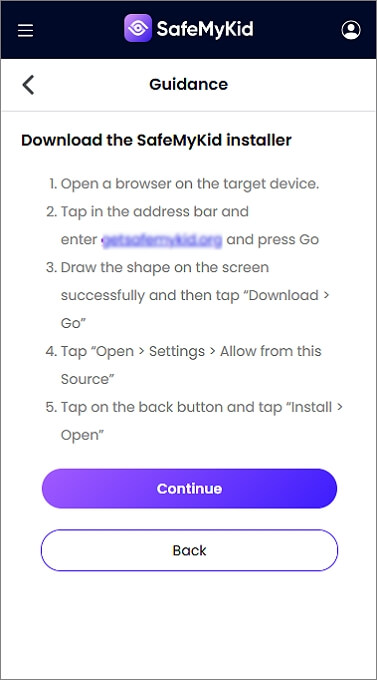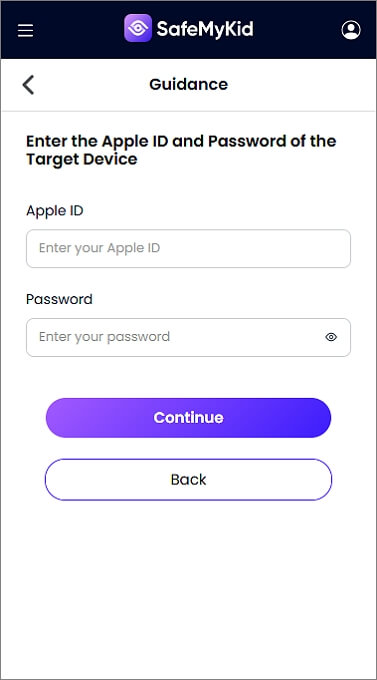Why Do People Cheat? 5 Effective Ways to Catch Them

Infidelity is one of the most challenging experiences anyone can face in a relationship. Cheating damages trust creates emotional turmoil, and often leaves the victim feeling lost and unsure of how to move forward. But why do people cheat in the first place? And more importantly, how can you catch a cheating partner if you suspect infidelity?
In this article, we will delve deep into the reasons people cheat and provide you with five actionable methods to uncover the truth, including using cutting-edge tools like SafeMyKid. Armed with this knowledge, you’ll be better equipped to handle one of life’s toughest realities.

Why Do People Cheat? Common Reasons and Motivations
Infidelity is rarely a single-cause phenomenon. It’s often a culmination of emotional, psychological, environmental, and social factors. By understanding the motivations behind cheating, you can address underlying issues and navigate your relationship more effectively.
1. Emotional and Physical Disconnection
One of the most frequent reasons for cheating is a lack of connection within the relationship. When emotional needs are unmet, individuals may feel neglected or unappreciated. For instance, a partner who craves words of affirmation might feel unloved in a relationship where their emotional needs are overlooked.

Similarly, physical intimacy plays a significant role. Long-term relationships can sometimes lose their physical spark, leading one partner to seek fulfillment elsewhere. This combination of emotional and physical disconnection often sets the stage for infidelity.
2. The Thrill of Novelty
The appeal of something new and exciting is another reason people cheat. Over time, relationships can fall into predictable routines. For some individuals, this monotony becomes unbearable, prompting them to look for excitement and a sense of adventure outside their current relationship.

This desire for novelty is often tied to the “grass is greener” syndrome, where people mistakenly believe that the unknown will be more fulfilling than what they already have. The secrecy and thrill of an affair can be intoxicating for these individuals, making it harder for them to resist temptation.
3. Unmet Expectations
Every relationship comes with expectations—whether spoken or unspoken. When these expectations aren’t met, it can lead to dissatisfaction and resentment. For example, if one partner expects constant emotional support but doesn’t receive it, they might start looking for someone else who can provide what they’re missing.

Unmet expectations aren’t always about the other person’s shortcomings. They can also stem from unrealistic standards set by the person feeling unsatisfied. Unrealistic expectations can create friction and dissatisfaction that fosters infidelity.
4. Personality Traits and Impulses
For some individuals, infidelity is less about the relationship and more about their own personality traits. Narcissism, for example, can lead someone to cheat because they crave attention and admiration from multiple sources. Similarly, impulsive personalities might struggle with self-control, acting on temptation without considering the consequences.

People with a history of infidelity or unresolved emotional issues are also more likely to cheat. These traits, combined with opportunity, can turn curiosity into action.
5. Influence of Social and Environmental Triggers
Sometimes, the environment plays a role in creating the perfect conditions for infidelity. Workplaces, for example, can foster emotional bonds that might cross boundaries. Long hours spent with coworkers, combined with shared challenges, can lead to connections that extend beyond professional relationships.

Similarly, peer pressure or exposure to a culture where cheating is normalized can increase the likelihood of infidelity. In these cases, the individual may feel that their actions are justified or “not a big deal” because others around them behave similarly.
How to Catch a Cheating Partner: 5 Proven Methods
Dealing with suspicions of infidelity can be emotionally draining, but knowing the truth is crucial for your peace of mind. The following methods can help you uncover the reality of your partner's behavior.
1. Conduct Open Conversations
Sometimes the simplest way to uncover the truth is to talk to your partner directly. Honest communication can reveal discrepancies or clear up misunderstandings, but it requires a calm and non-confrontational approach.

2. Observe Behavioral Changes
Behavioral changes are often the first sign of infidelity. If your partner suddenly becomes overly secretive with their phone, frequently changes passwords, or spends extended hours away from home, these could be red flags.

Other signs include excessive grooming, unexplained irritability, or a noticeable increase in defensiveness when asked simple questions. Observing these shifts over time can provide valuable clues about potential dishonesty.
3. Identify Emotional Detachment
Cheating often creates a psychological and emotional barrier between the unfaithful partner and their significant other. You might notice that your partner avoids meaningful conversations, withdraws from intimacy, or no longer shows interest in shared activities.

Though emotional detachment doesn’t always indicate infidelity, it’s worth addressing as it signifies a problem within the relationship that requires attention.
4. Monitor Unusual Financial Activity
Cheating often involves secret spending. Unexplained charges on joint credit cards, increased cash withdrawals, or unusual purchases can provide evidence of infidelity. Look for charges related to hotel stays, gift shops, or restaurants that you haven’t visited together.

Leverage SafeMyKid to Catch Your Cheating Partner
In today’s digital age, technology provides powerful solutions for uncovering infidelity discreetly. Among the various tools available, SafeMyKid stands out as the most reliable, user-friendly, and comprehensive monitoring app. Designed to help individuals track activities on their partner’s Android device, SafeMyKid combines simplicity with advanced features to provide clear insights without breaching ethical boundaries.

Key Features of SafeMyKid:
- Comprehensive Monitoring Tools:
SafeMyKid offers detailed tracking features that cover almost every aspect of a partner’s mobile activity:
- Text Messages and Call Logs: Gain insight into who your partner communicates with and how frequently.
- Social Media Monitoring: Keep tabs on popular platforms like WhatsApp, Facebook, and Instagram.
- GPS Tracking: Always know where your partner is, ensuring transparency in their whereabouts.
This all-in-one functionality makes SafeMyKid a superior option compared to its competitors, who may only focus on one or two tracking features.
- Easy Installation and Use
Unlike other complicated tracking tools, SafeMyKid is designed for users of all technical skill levels. The app provides a simple and intuitive installation process, ensuring you can get started in minutes without advanced knowledge.
- Outstanding Customer Support
SafeMyKid offers round-the-clock customer support to address any technical issues or queries. Many competitor apps lack this level of assistance, leaving users frustrated and unsure of how to proceed when challenges arise.
- Affordability Without Sacrificing Features
Compared to other monitoring tools, SafeMyKid is priced competitively, ensuring access to premium features without breaking the bank. Its subscription plans are flexible and cost-effective, allowing you to choose the package that suits your needs best.
Why SafeMyKid Stands Out:
While other apps may promise similar features, SafeMyKid goes above and beyond by delivering:
- Comprehensive insights without invasive techniques.
- Simplified monitoring for both Android and iPhone
- Reliable customer support and ethical guidance to ensure your experience is smooth and respectful.
Competitors often fall short in terms of usability, security, and coverage. They may offer limited features or charge exorbitant fees without delivering value. SafeMyKid, on the other hand, provides a balanced approach, making it a superior choice for uncovering the truth.
How to Use SafeMyKid
Setting up SafeMyKid is quick and easy, allowing you to monitor activities discreetly and gain peace of mind. You can set up SafeMyKid both on Android and iOS devices; follow these simple steps to get started.
How to Detect Cheating On Android
Step 1. Sign up and create your account using your email address.

Step 2. Set up the SafeMyKid app on this target Android device quickly, without them knowing.

Step 3. Begin monitoring in real-time through SafeMyKid’s online dashboard.

How to Detect Cheating On iPhone
Step 1. Create your account for free by entering your valid email address.

Step 2. No app installation is required! Simply set up SafeMyKid on the target iPhone using only the owner’s iCloud credentials.

Step 3. Begin to use SafeMyKid for remote monitoring from the online dashboard.

With its robust features, affordability, and ethical focus, SafeMyKid is a game-changing tool for anyone dealing with the painful suspicion of infidelity.
Official Methods of Uncovering Cheating in a Relationship and Their Pros/Cons
When it comes to uncovering infidelity, official methods provide reliable insights but come with their own advantages and drawbacks. Here’s a breakdown of the most common approaches and what to consider before using them.
Advantages:
- Easy to use and ethical.
- Free or low-cost, especially for shared device access.
Disadvantages:
- May not provide comprehensive details.
- Could lead to privacy violations if used without consent.
Limitations of Third-Party Apps
While many apps promise comprehensive monitoring, they often come with drawbacks like complicated setups or high subscription fees. Unlike SafeMyKid, they don’t combine ease of use with advanced features.
Frequently Asked Questions on Why People Cheat
Understanding why people cheat can be complex, and many questions arise on the topic. Here are some frequently asked questions to help clarify common concerns about infidelity:
1. Is it ethical to track a partner's device for evidence of cheating?
Tracking a partner's device can be a sensitive matter. While tools like SafeMyKid are designed for discreet monitoring, it’s important to ensure ethical use by adhering to privacy laws and only tracking with valid personal or legal justification. Open communication and seeking professional guidance can sometimes achieve better outcomes.
2. How can I build trust again after infidelity?
Rebuilding trust after infidelity involves time, patience, and effort from both partners. Key steps include:
- Open and transparent communication.
- Establishing boundaries for future behavior.
- Seeking professional counseling for relationship repair.
It’s also important for both partners to reflect on what led to the infidelity and address those underlying issues together.
3. How can I prevent cheating in my relationship?
While there’s no guaranteed way to prevent infidelity, maintaining a healthy and fulfilling relationship can reduce its likelihood. Tips include:
- Fostering open communication to discuss needs and concerns.
- Prioritizing quality time together.
- Consistently showing appreciation and affection.
Being proactive in addressing potential relationship problems can help both partners feel secure and satisfied.
4. Is cheating always the end of a relationship?
Not necessarily. While cheating can deeply damage trust, many couples recover and even strengthen their bond after infidelity. The likelihood of recovery depends on:
- The willingness of both partners to repair the relationship.
- The presence of genuine remorse and accountability from the unfaithful partner.
- Efforts to address underlying issues through honest communication or counseling.
5. Can I use therapy to understand why my partner cheated?
Absolutely. Therapy—whether individual or couples’ counseling—can provide valuable insights into the dynamics of your relationship and the reasons behind infidelity. A therapist can also help you navigate the emotional fallout and create a path forward, whether you decide to stay together or part ways.
Conclusion
In this article, we discussed the question –why do people cheat; people cheat because they feel emotionally and physically disconnected from their partners, some want to gain new experiences with other people, some even do it because their expectations are not met, and others are influenced by social or environmental triggers.
Infidelity is never easy to face, but understanding the motivations behind it and having reliable tools like SafeMyKid can help you regain control and clarity. It is important that you approach the situation calmly and ethically, and always prioritize open communication and informed decision-making for your next steps.




